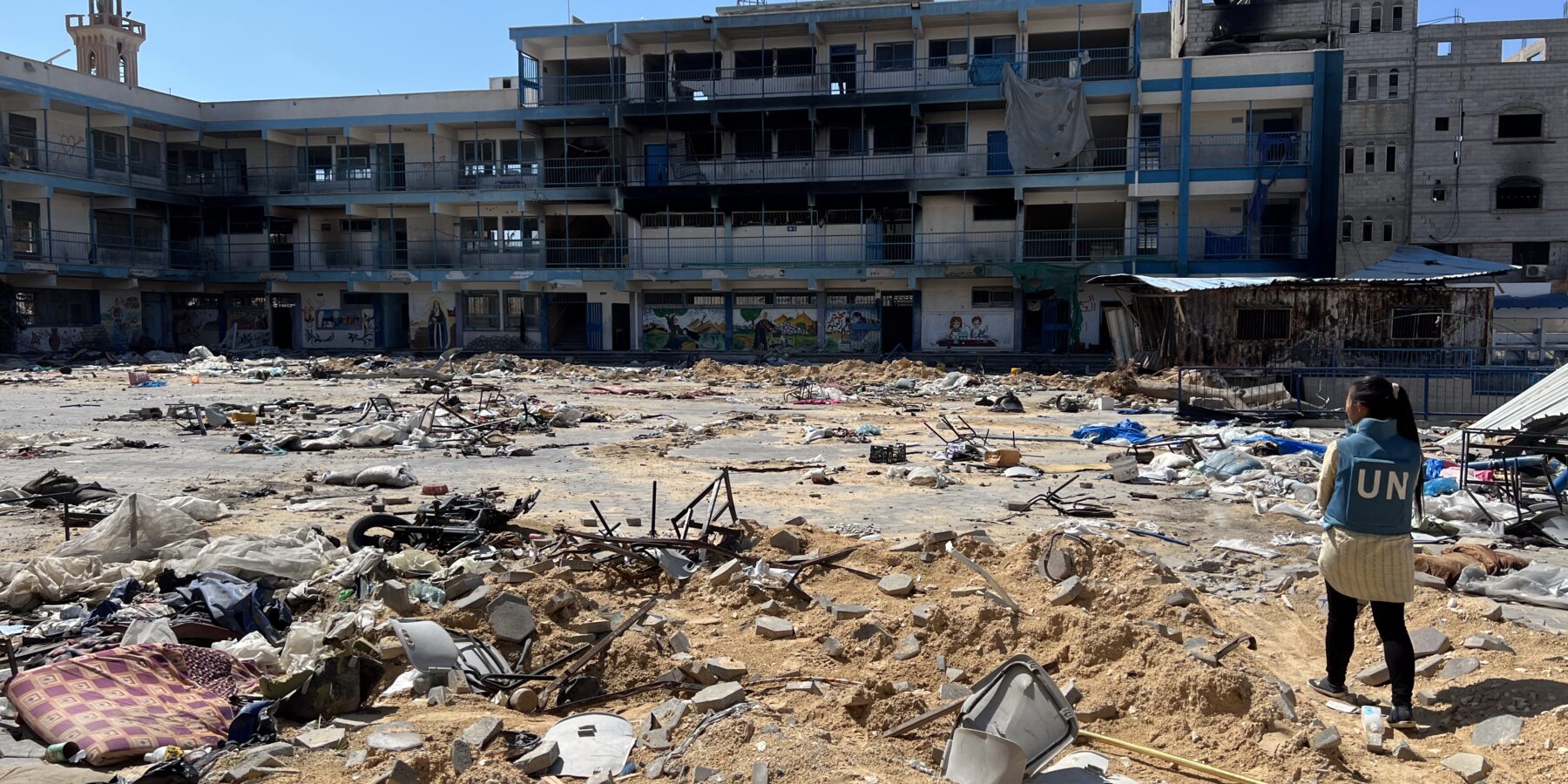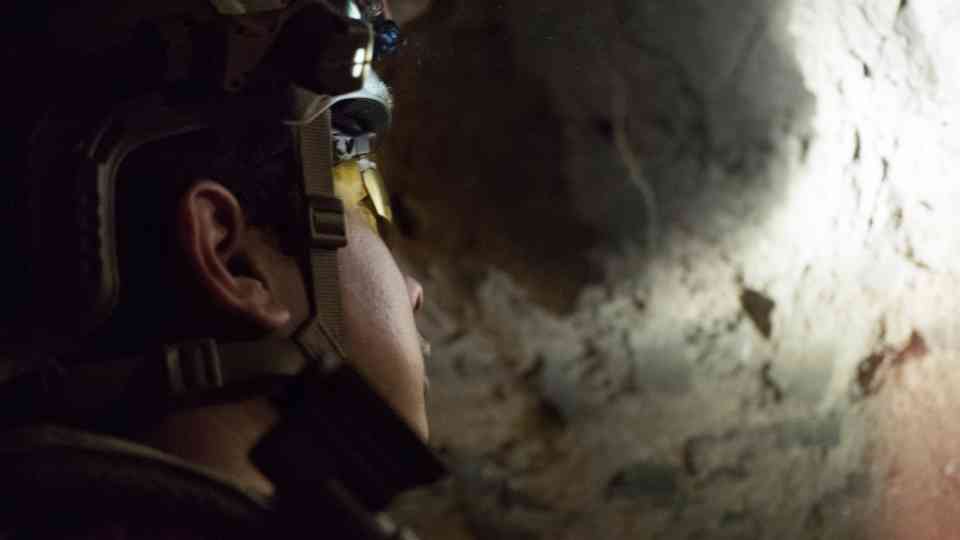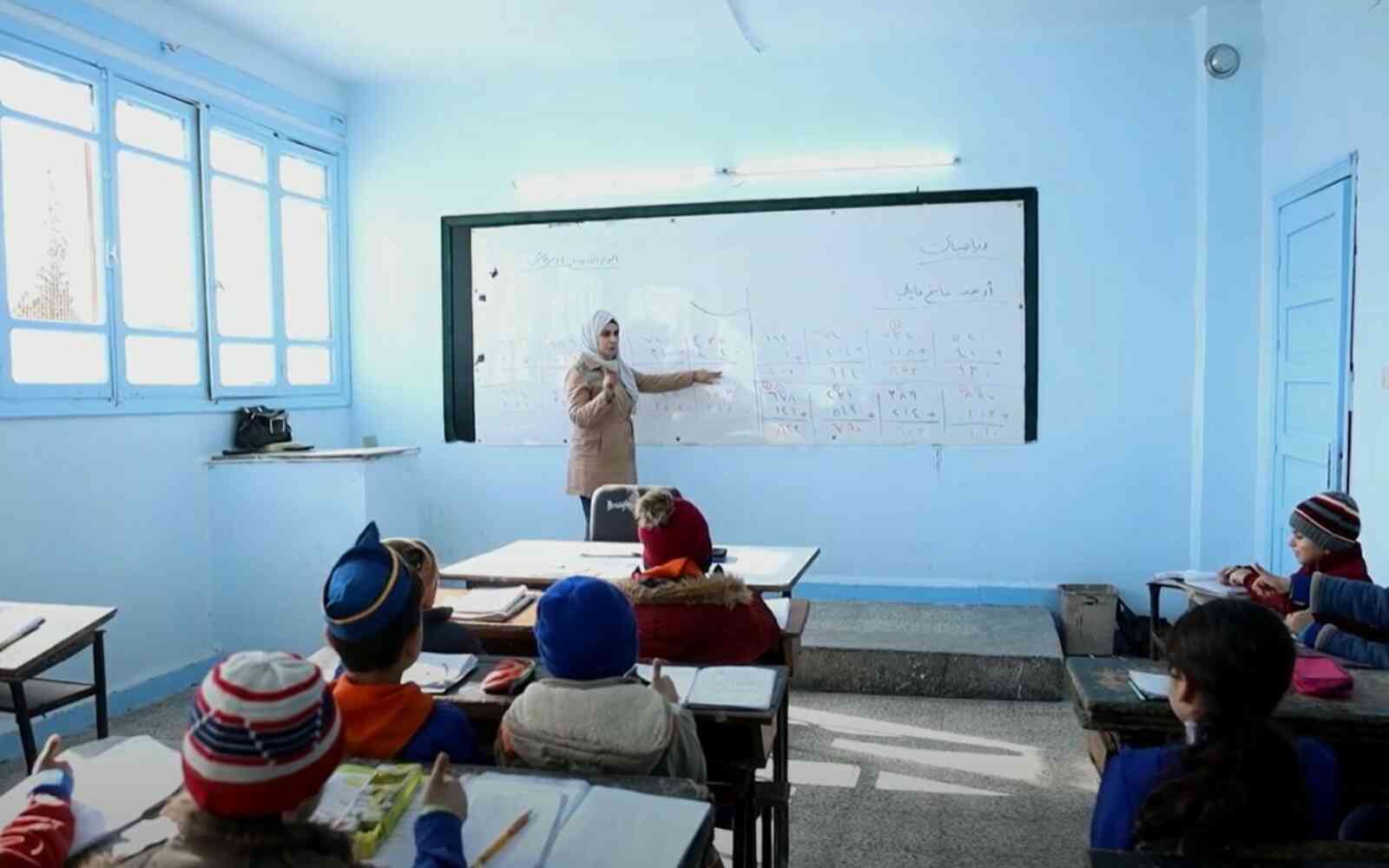The United Nations Office for Project Services (UNOPS)

Navigating humanitarian mine action amid conflict
Amid the hostilities in Gaza, UNOPS and the UN Mine Action Service (UNMAS) are helping safeguard critical humanitarian aid efforts by mitigating the dangers of landmines and unexploded ordnance.
- This article was published on 30 April 2024.
The severe hostilities in Gaza have led to significant loss and damage, resulting in over 34,000 Palestinian fatalities, 77,000 injuries* and the displacement of 1.7 million people. Critical infrastructure damage amounts to an estimated $18 billion, with 85 per cent of hospitals now damaged or destroyed.
The ongoing fighting and the pervasive threat of landmines and unexploded ordnance make living conditions for the people of Gaza all the more desperate – and hinder the safe delivery of essential humanitarian aid. An estimated 37 million tonnes of rubble and unexploded weapons are now scattered across the Gaza Strip.
To support the emergency humanitarian response, UNOPS and UNMAS are conducting thorough explosive threat and risk assessments at key locations across Gaza, before humanitarian convoys are dispatched. This includes assessments at UN buildings and humanitarian shelters – which have been heavily impacted by explosive ordnance – to ensure the safety of humanitarians and civilians alike. UNOPS and UNMAS Explosive Ordnance Disposal Officers support all UN missions and advise humanitarian aid actors on safe practices around explosive ordnance.
Director of UNOPS Peace and Security Cluster, Amir Omeragic, who recently visited Gaza, including Rafah and Khan Younis, witnessed firsthand the staggering destruction, population movement and temporary shelters.
In Rafah, our national colleagues continue to deliver for the people and demonstrate unwavering commitment, initiative and professionalism every day, despite the need to take care of their own physical safety and that of their families.
UNOPS and UNMAS are also providing extensive explosive ordnance risk education and training for local and international partners – including UN and humanitarian personnel. This helps to increase awareness of the potential dangers, and ensure aid personnel are better able to navigate and mitigate the risks posed by explosive ordnance.
The measures have supported the delivery of aid under the most challenging conditions – safeguarding critical humanitarian assistance operations across Gaza.


Immense gratitude to my @UNOPS team in #Gaza for operations support (with @WHO/@UN team) at Al-Shifa hospital. 31 very sick babies were evacuated. Further missions - to transport remaining patients & health staff - requires guarantees of safe passage by parties to the conflict. pic.twitter.com/XtYDgYU2eV
— Jorge Moreira da Silva (@UNOPS_Chief) November 19, 2023
The emergency evacuation of 31 premature babies from Al-Shifa Hospital in northern Gaza – led by the World Health Organization together with local partners – was a particularly notable operation.
During another mission, UNOPS and UNMAS teams helped maintain the safety of a convoy throughout the long journey to Al-Hilal hospital in the Khan Younis governorate – amidst widespread destruction, rubble and areas suspected of explosive remnants of war contamination.
“I remember when we successfully reached Al Hilal Hospital in the heart of Khan Younis governorate after days of electricity, water, fuel and medicine shortages. There were many patients in desperate need of life-saving care,” says Carlos Serrano, an Explosive Ordnance Disposal Officer who escorts humanitarian convoys and carries out explosive hazards risk assessments.
“Once the convoy arrived at the hospital, people expressed relief and hope [...] Such a humanitarian convoy would not have succeeded in reaching the hospital without the support of UNOPS/UNMAS,” he adds.
Risk education and training initiatives have also helped prepare more than 100 UNRWA protection personnel in risk-prone areas, significantly reducing the risk of explosive ordnance accidents. The ability of communities to cope with the risk of explosive hazards has also improved, as evidenced by a targeted social media campaign on Explosive Ordnance Risk that reached over 1.4 million people in Gaza and the West Bank between October 2023 and March 2024.
In this time of crisis, UNOPS and UNMAS are delivering a robust response to the complex challenges posed by armed conflict and explosive remnants of war. Through strategic partnerships across the UN and with local partners, UNOPS and UNMAS are helping to enhance safety and security, and ensure humanitarian efforts proceed despite the severe adversities faced.
“We are right now facilitating the safe delivery of essential emergency humanitarian activities,” explains Lillian Figg Franzoi, UNOPS Head of Project Unit in Palestine.
“Particularly focused on ensuring that those most in need – in the hardest to access parts of Gaza, in places with potentially high levels of explosive contamination and extremely dire circumstances – are not left behind amidst these efforts,” she added.
*Numbers according to the Ministry of Health in Gaza, reported in OCHA Flash Update #156, 22 April 2024.













